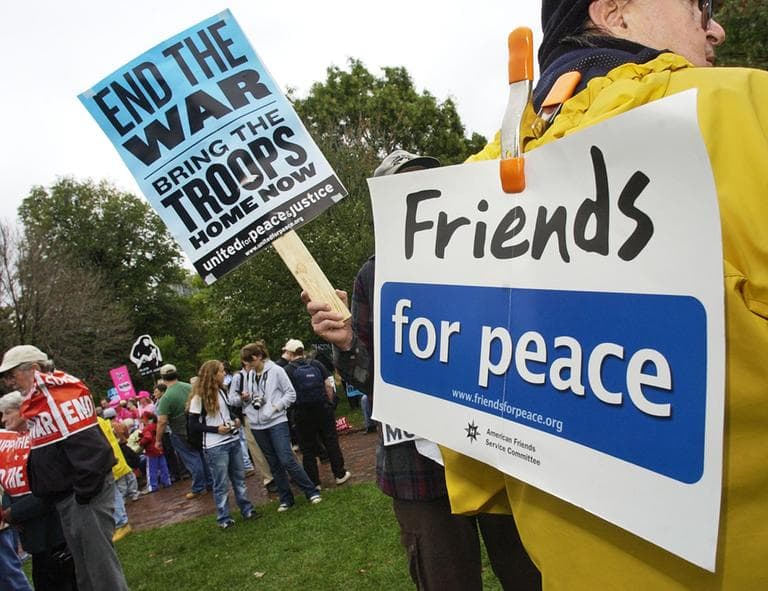Advertisement
Boston Police: Unlawful Surveillance Or Justified Information Collection?
Resume
A report released by the Boston chapter of the American Civil Liberties Union and the National Lawyers Guild says the Boston Police Department is using its fusion center — set up after 9/11 to better share information among federal, state and local law enforcement agencies — to spy on lawful activities.
The ACLU and NLG says after reviewing public police records obtained with a court order, they see a pattern of police monitoring peaceful demonstrations, interrogating activists and categorizing peaceful groups as extremists.
Pat Scanlon, a coordinator of the group Veterans for Peace, one of the groups labeled as "extremist" in the documents, calls the label outrageous.
“I take exception to that in the sense that I think groups like the Ku Klux Klan or skinheads may be considered as extremist groups,” Scanlon told WBUR's Monica Brady-Myerov. “We have not been or will not ever be involved in criminal activity. All of our activities are based on promoting peace and civil liberties.”
BPD says it does not gather information on First Amendment-protected groups and events.
"Boston Police say the fusion center does not maintain continued surveillance or documentation on peace protest groups. It says they do not monitor events without specific information on suspected criminal activity," WBUR's Monica Brady-Myerov reported last week.
We look deeper into whether or not police are violating civil liberties or simply doing their job.
Guests:
- Thomas Nolan, lecturer at Tufts University; former Boston police officer and former senior policy adviser in the Office for Civil Rights and Civil Liberties at the Department of Homeland Security
- Rick "Ozzie" Nelson, senior fellow at the Center for Strategic and International Studies; previously worked on the White House's National Security Council and at the National Counterterroris
m Center - Kade Crockford, director of technology for the Liberty Project with ACLU of Massachusetts
More:
- Groups Fault Boston Police For Surveillance
- ACLU Report: Policing Dissent: Police Surveillance of Lawful Political Activity In Boston
- Boston Police Department Statement On ACLU Allegations
- Congressional Report On Support For And Involvement In State And Local Fusion Centers
- See all of the documents obtained by the ACLU and NLG from the BPD
This segment aired on October 23, 2012.